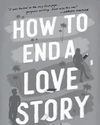Prøve GULL - Gratis
Escalate Conflict to Keep Readers Turning Pages
Writer’s Digest
|May - June 2024
Draw readers in through physical, emotional, mental, and spiritual conflict.

Every great story depends on conflict to propel it forward. Conflict is found in your book's overarching concept-the big idea-expressed in a way that highlights the tug-of-war between opposing forces. The more profound the conflict, the more compelling the read. Conflicts can be transcendent, fueling the plot of a sweeping epic novel or memoir, or they can be of limited scope, telling an important story by focusing on a single example. Broadly, there are four categories of conflict:
Your story can focus on any one of these categories, some combination of them, or all of them.
Deciding whether a conflict is suitable for a certain story is a complex task. Not only do certain genres come with specific reader expectations, but the conflict has to be relatable.
All Conflicts Are Internal
On the face of it, it would seem that there are two kinds of conflicts: external and internal. However, it is people's reactions to an incident, not the incident itself, that generates a conflict. In other words, all conflicts are internal. If someone doesn't care about a situation, you don't have a conflict. This means, of course, that we need to understand what makes people care. Consider what other authors (see chart on next page) have observed about the anatomy of conflict, starting with one of America's founding fathers, Thomas Paine, who said, "The harder the conflict, the more glorious the triumph."
Storytelling Requires Conflict
It's easy to mistake premise for conflict. Consider this: In Victorian England, a couple meets and falls in love.
Do you see the problem? There's no conflict.
Denne historien er fra May - June 2024-utgaven av Writer’s Digest.
Abonner på Magzter GOLD for å få tilgang til tusenvis av kuraterte premiumhistorier og over 9000 magasiner og aviser.
Allerede abonnent? Logg på
FLERE HISTORIER FRA Writer’s Digest
Writer’s Digest
100 Best Markets for Writers
A list of print and online publications looking for freelancers to contribute their knowledge on everything from pet care to finance and beyond.
65 mins
Yearbook 2026

Writer’s Digest
Memoir Plus
Add a bonus to your personal narrative for a marketing boost.
8 mins
Yearbook 2026
Writer’s Digest
Surefire Ways to Sell Your Children's Book
In my 28 years editing children's books, I've learned that publishing exists at the intersection of art and commerce.
5 mins
Yearbook 2026
Writer’s Digest
The ABCs of Freelance Success
Many freelance writers, especially those at the beginning of their careers, tend to place almost all of their professional focus on one specific component: craft.
5 mins
Yearbook 2026

Writer’s Digest
How to Write in Different Genres
Emiko Jean and Yulin Kuang share tips and strategies for how they successfully write in different genres and mediums.
8 mins
Yearbook 2026
Writer’s Digest
Small But Mighty
Why small presses might be the perfect home for your book.
8 mins
Yearbook 2026

Writer’s Digest
The Story Behind the Story
What's backstory, and what's it doing here anyway?
6 mins
Yearbook 2026

Writer’s Digest
2025 Year in Review
Publishing expert Jane Friedman recaps the biggest news in the industry.
8 mins
Yearbook 2026

Writer’s Digest
What Is Your Story Question?
When a story isn't working—when you know it's not quite coming together, when beta readers and critique partners confirm your fears but can't put a finger on why, or you're not getting offers from agents or publishers—savvy authors start trying to diagnose the issue by examining its component parts, like characterization, plot, and stakes.
6 mins
Yearbook 2026
Writer’s Digest
Writer's Digest 27th Annual 101 Best Websites for Writers
For the 27th year, Writer's Digest is shining a light on 101 websites with a goal of helping writers in a variety of ways.
26 mins
Yearbook 2026
Listen
Translate
Change font size
